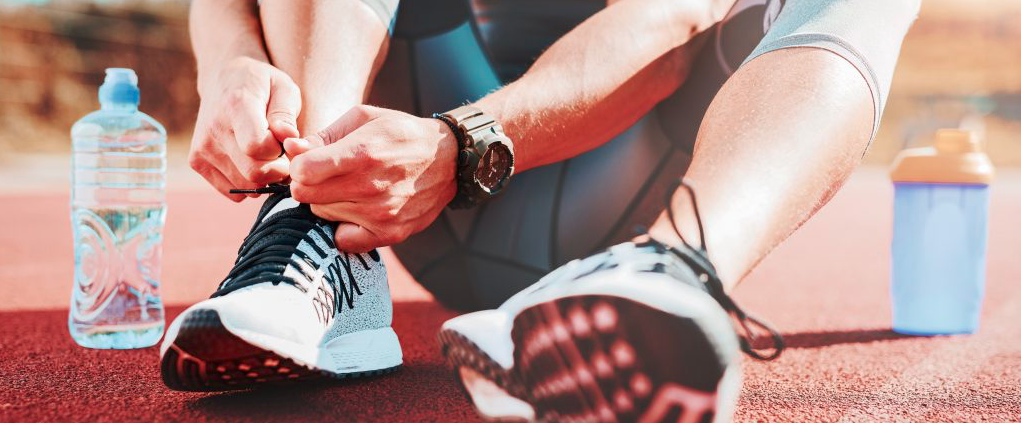Drinking while exercising: sweat properly, drink properly
During muscle work, chemical energy is converted into mechanical energy and heat. The efficiency is only 25%, which means the remaining energy is “lost” as heat: We’re getting hot. During intense physical activity, the body is forced to release the generated heat to the outside through sweat in order to avoid overheating of the organism, which is harmful to health. Otherwise the core body temperature would be increased too much.
So whoever does sport sweats. Sweating does not have to be a sign of a bad training condition, on the contrary – those who are well trained can sweat well. Sweating is necessary for the organism’s heat regulation so that the core body temperature does not rise to a dangerous level, which could lead to heat stroke. The importance of the most effective heat dissipation possible through adequate sweating during prolonged physical exertion is illustrated by the example of running a marathon. Top athletes complete it with a body temperature of up to 40 degrees Celsius!
How much we sweat depends on a number of factors. With intensive work, high ambient temperature and humidity, the loss of sweat increases. Anyone who sweats a lot and constantly loses a not inconsiderable amount Body water . This is at the expense of the fluid in the body cells, the intercellular space and ultimately also the blood plasma, i.e. the part of the blood that consists of water. The result is a decrease in blood flow, which means that the body is poorly supplied with oxygen and “waste products” can be removed less easily.
Health risks when sweating
For athletes who train in warm climates, greater fluid loss can cause significant health problems, primarily from overheating the body to heat breakdown and heat stroke. Sweat rates that 2 liters per hour exceed are not uncommon. The consequences are only fatal in a few cases, only a water loss of 10% of the body weight leads to serious symptoms, a dehydration of 15% is usually fatal. But even relatively small sweat losses reduce performance.
Scientific research has shown that a Water loss of already 2% of the body weight significantly affects performance. For most people, this corresponds to less than two liters of sweat loss. Especially in sports where fractions of a second decide between victory and defeat, such a disadvantageous effect not only affects the end result, but also the subjective degree of fatigue felt.
Drinking properly is crucial
The hydration plays a big role in sport. If you sweat a lot, you not only lose water, but also sodium. The loss of minerals must also be compensated for. A water with a high sodium content is ideal for this. If you choose mineral water, it should be carbonated-free or low-carbon. This irritates the stomach less and prevents hiccups.
Various sports drinks are available at the market. Electrolyte and isotonic drinks must have a certain composition. The contained minerals can be quickly absorbed by the body and quickly replace water and energy losses. Such drinks are aimed primarily at high-performance athletes. In popular sports, the same results can usually be achieved with diluted fruit juices. In any case, you should keep your hands off soft drinks and beverages containing caffeine – these can downright dehydrate the body.



